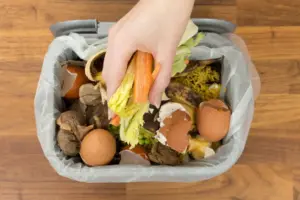All Suffolk household food waste to be processed locally at new AD plant

This initiative, launching alongside the start of weekly kerbside food waste collections in 2026, promises a more efficient, environmentally friendly and cost-effective solution for managing food waste, according to the local authority.
The facility is expected to handle around 31,000 tonnes of household food waste annually, converting it into biomethane for green energy and nutrient-rich digestate that can be used as soil fertiliser.
This not only supports the production of renewable energy but also contributes to maintaining sustainable farmland, benefiting local farmers by improving soil health within Suffolk.
Councillor Chris Chambers, Suffolk County Council’s Cabinet Member for Transport Strategy, Planning and Waste, described the contract as a significant step that underlines the council’s commitment to sustainability and renewable energy.
He emphasised the importance of a local processing solution to minimise transport impacts and deliver efficiency. Chambers also highlighted the potential financial and environmental benefits of reducing food waste, encouraging residents to be mindful of their waste as collections commence next year.
Jake Harrison, Chief Operating Officer at Bio Capital, welcomed the partnership, noting that the project will advance the regional circular economy by transforming thousands of tonnes of food waste into renewable energy to power homes and businesses throughout Suffolk.
Jenny Hanlon, CEO of Adnams, expressed enthusiasm for the project, noting the company’s longstanding dedication to sustainability and innovation. She highlighted the economic benefits, including job creation, and praised the partnership approach as an important step towards helping local residents progress on their own journeys to net zero.
Currently, household food waste that is discarded with general rubbish is taken to the Energy from Waste site at Great Blakenham near Ipswich, where it is used to generate electricity. The new anaerobic digestion plant is expected to provide a more sustainable alternative by recycling food waste locally and producing valuable resources.
This development forms part of the government’s ‘Simpler Recycling’ initiative, designed to standardise recycling practices across England, making recycling easier, more consistent, and more effective.


















